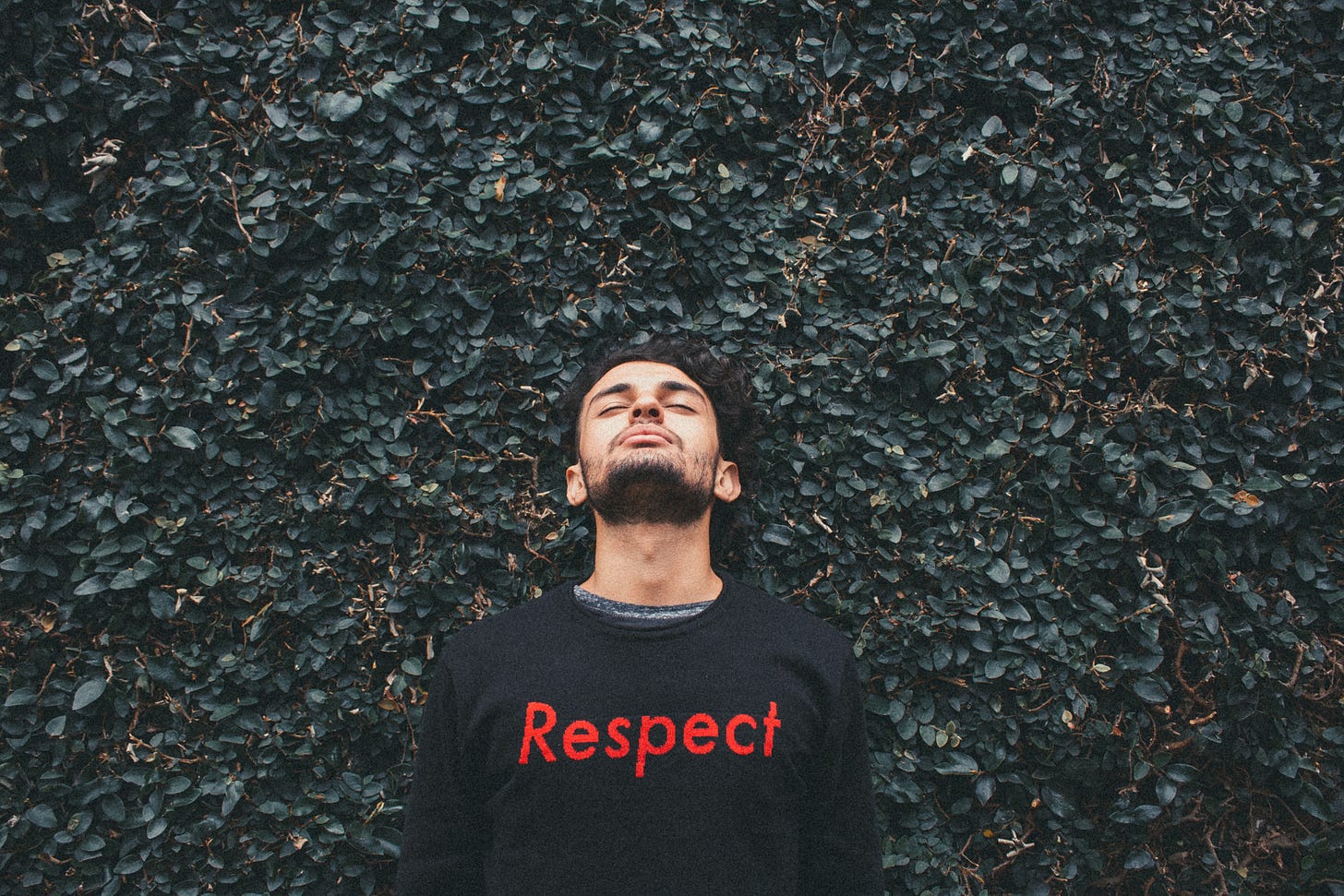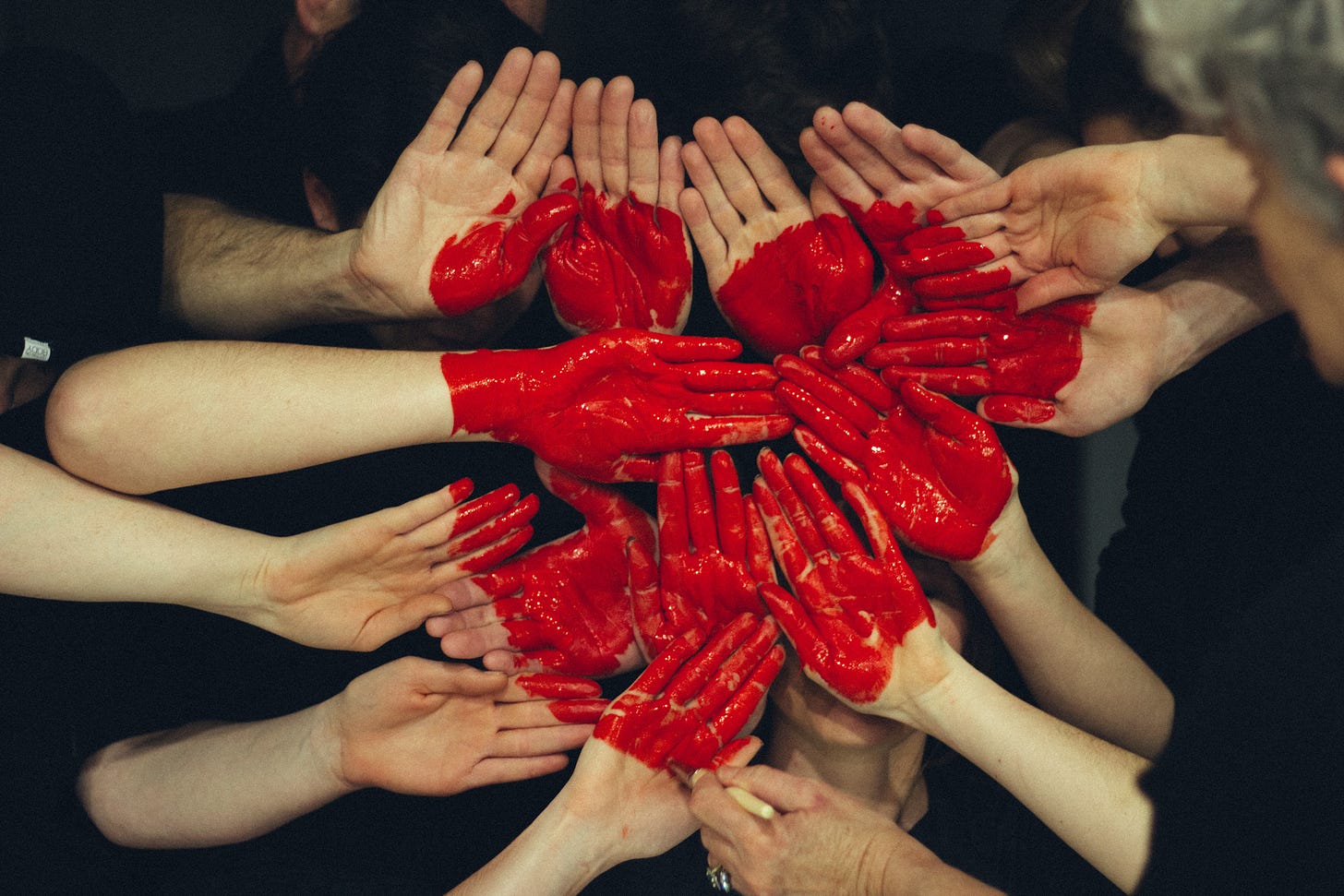Seven Mediation Strategies to Revolutionize Our Politics
By incorporating everything from open questions to smaller groups, we can make everyone's voice count
This week’s essay draws inspiration from Ken Cloke’s book, Politics, Dialogue, and The Evolution of Democracy. He talks about how to discuss all the hot, tricky topics, including race, abortion, immigration, gun control, climate change, and same-sex marriage. Ken doesn’t shy away here.
He talks about the assumptions in the world of mediation that might be useful in our political conflicts. One of our assumptions is that you can't disprove people's beliefs. When people bring their beliefs and ideology, they hold some grain of truth. But sometimes, the intense feelings we have about political issues go beyond facts.
While facts matter, emotions are still valuable: They play into the iceberg model I mentioned last week. The things below the surface help us discover what matters to the person. We can uncover their true needs and interests by looking beyond the surface issue, the tip of the iceberg.
Let’s jump into strategies and principles we can apply to our political climate.
Everyone’s view matters
A fundamental principle in mediation is that everyone’s opinion is meaningful. All views are legitimate and hold some part of the truth. What would it look like to discuss complex issues like race, guns, and same-sex marriage by integrating dialogue tools into our political system?
We need to apply interest-based thinking to our political process to ensure that we include people who have different ideas. Welcoming everyone into the process is vital, especially those who don't agree with each other. That’s basic conflict resolution.
It is the problem, not you
Mediation and dialogue reframe a problem as an "it" rather than a “you.” This helps people in conflict face the issue together rather than blaming each other. It’s like going from face-to-face to standing shoulder-to-shoulder to look in the same direction.

Creating a respectful environment
We want to make sure that we're creating an atmosphere based on respect and collaboration that holds everyone there regardless of their opinions.
A great skilled mediator or facilitator can create that environment and maintain it. How do they do it? They make shared ground rules, goals, and values to guide them. The process involves ensuring that everyone agrees on the rules before the mediator establishes them. By doing this, the group is more likely to stick to the process.
Asking open questions
A tool that can be really useful in our political debates is bringing up questions that don't have a single correct answer. We can ask people questions with many correct answers to get great insights.
Ken uses an excellent example:
I can go into a room of people and say, “Who is the tallest person here?” There's only going to be one correct answer to that.
Then I can ask everyone in the room, “How tall are you?” Everyone's going to say a certain height, so there are many correct answers, but only one correct answer for each person.
We can ask an interest-based question: “What is your experience of being your height?” That’s something that touches deep. There are many correct answers, and we're learning something valuable. We’re figuring out those hidden underlying needs and interests behind each person.

Smaller groups = better things
Another awesome strategy we can bring into our political conflicts is breaking large groups of people into small groups so they can have a proper conversation.
Picture a town hall meeting. Everyone’s yelling, trying to get their voice heard. There are 100 people, and no one is listening.
Let’s break that group of 100 into 20 groups of five or ten groups of ten. Now they can have a proper conversation, truly hear each other, and create powerful things.
Taking responsibility
We need to make sure that everyone takes responsibility for the process. It's not just a process given to someone; instead, everyone has shared responsibility.
When things start going sideways, if the conversation's not working anymore, you can ask: "Is this conversation working for you?" Then you can have a conversation about how we can improve that conversation. It gives everyone buy-in on how they can enhance that conversation, and it shares the responsibility. This avoids people just saying, “Hm, I don’t know, and I don’t care.”
Asking great questions draws people in. If you ask a question that people disagree with, it engages them and makes them want to be part of the conversation. It’s a super powerful way to entice people and accomplish mutual interest in the discussion.
As I said last week, being clear about the goal or question gets you halfway to resolving conflict. Asking an engaging, open-ended question for all sides is the perfect way to get started. Here’s an excellent download: A guide to question design.

The process is ongoing
Another critical thing to remember is that this will be an ongoing conversation. Now you've gone through the process and had a hard conversation, you can ask everyone:
“What can we do now to make this conversation easier next time?”
“How can we improve our communication and keep improving this in the future?”
“When do we want to come back together to continue this conversation?”
We can use all these powerful aspects of mediation and dialogue in our political process. They would shake up politics as we know it.
What’s next?
This essay is kicking off a whole series. Next, I'll talk about what’s going on in our political system, why we’re having win-lose conversations, and the forces promoting that. This includes the political-industrial complex. Then I’ll show you some remarkable philosophical and scientific frameworks for navigating polarization and complexity. These may help us escape the drive to find simple answers.
We’ll also be looking at how we engage with a complex and challenging world when we can’t find final solutions to our problems.
All of this is part of the Omni-Win Project. I’m releasing a new podcast in the summer where I'm talking with various folks about the future of democracy. I'll be doing this long into the future because I'm dedicated to accelerating the co-creation of our democracy. Please stay tuned and subscribe if you haven’t already. Thank you.
Check out this slide deck for Ken Cloke’s Politics, Dialogue, and the Evolution of Democracy.
If you prefer to watch your content, here’s a video on the topic of this essay:
You can find more information about the work I do in conflict transformation on my website: http://www.omni-win.com
You can schedule a call with me here: https://calendly.com/duncanautrey
Don’t forget to check out the rest of my posts as I discuss how we can work together to ensure we all win.
If you’d like to see more of these weekly round-up posts, subscribe to Omni-Win Visions here on Substack:
It would also be great if you could subscribe to my YouTube channel, where you can watch more of my long-form content, authentic discussions, and weekly content:

